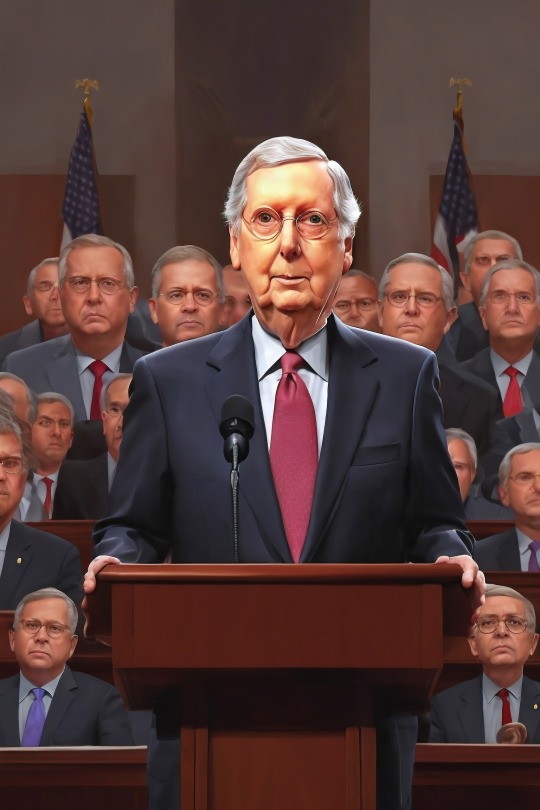Text
New Speaker of the House: Democrats Choose Leader for America's Future #bipartisansolutions #climatechange #COVID19pandemic #DavidCicilline #democraticparty #DemocraticPartydirection #DemocraticPartypriorities #dividedCongress #economicinequality #endorsements #futureofAmericanpolitics #HakeemJeffries #healthcare #houseofrepresentatives #leadershipskills #moderates #NancyPelosi #newspeaker #politicalpolarization #stepdown #TomSuozzi #Trumpadministration #undecidedrepresentatives
#Politics#bipartisansolutions#climatechange#COVID19pandemic#DavidCicilline#democraticparty#DemocraticPartydirection#DemocraticPartypriorities#dividedCongress#economicinequality#endorsements#futureofAmericanpolitics#HakeemJeffries#healthcare#houseofrepresentatives#leadershipskills#moderates#NancyPelosi#newspeaker#politicalpolarization#stepdown#TomSuozzi#Trumpadministration#undecidedrepresentatives
0 notes
Text
Age, Health, and the American Political Landscape: An In-Depth Analysis Introduction

In a shocking incident, Mitch McConnell, the Senate Majority Leader, appears to have suffered a neurological episode during a public event. The septuagenarian remained frozen for almost 30 seconds and had to be escorted away from the podium. McConnell is one of many elderly individuals who occupy high positions in the US government. This raises an essential question about the intersection of age, health, and leadership in American politics.
The Perils of Aging Leadership
Elderly politicians like McConnell, Nancy Pelosi, Donald Trump, and Joe Biden dominate the American political sphere. It's not to say these individuals aren't competent or effective, but one cannot ignore the undeniable fact that aging has physiological and psychological implications.
As individuals age, they face increased risk of health issues like dementia, senility, and various other chronic illnesses. These conditions can impair cognitive function, decision-making capabilities, and overall performance, especially under the stress of high-profile leadership roles. Despite this, there is no provision for term limits or cognitive acuity tests for public servants beyond a certain age, a striking oversight considering the potential implications for policy-making and governance.
The Politics of Ageism
Criticizing the prevalence of elderly individuals in positions of power can be misconstrued as ageism. But it's not a matter of discrimination or bias; it's a matter of pragmatism and rationality. Leaders should be in a position, both physically and mentally, to withstand the pressures of office, make sound decisions, and effectively lead their constituents. It's not to say that younger individuals are inherently better leaders, but they are less likely to suffer from age-related health issues that could compromise their effectiveness.
The Consequences of Outdated Perspectives
Many of these elderly leaders cling to antiquated ideas and ideologies that no longer resonate with a rapidly evolving society. The world we live in is not the same as it was decades ago when these individuals began their political careers. Society evolves, and so should its leaders. This is not a call to disregard the wisdom and experience that comes with age, but rather an appeal to ensure our leaders are in touch with the realities and demands of the present day.
The Need for Change
The incident involving McConnell underscores the need for reform. It's high time we implemented term limits and cognitive assessments for politicians, especially those in high office. This is not only to ensure their well-being but also to safeguard the interests of the American public. We should elect leaders who are physically and mentally fit to bear the burdens of office and represent the diverse and dynamic population they serve.
It's an uncomfortable conversation, but it's a necessary one. The issue isn't about age—it's about the ability to lead effectively, make sound decisions, and navigate the complexities of a rapidly changing world. It's about ensuring that our leaders are equipped to confront the challenges of the 21st century with vitality, intellectual acuity, and an informed understanding of contemporary realities. It's about safeguarding the future of the American political landscape.
#AgeAndLeadership#HealthInPolitics#TermLimitsNow#AcuityTestInPolitics#AmericanPoliticalReform#NoToAntiquatedIdeologies#FutureOfAmericanPolitics#LeadershipFitness#ElderlyInPolitcs#MitchMcConnell#Biden#Trump#Pelosi#Boomers#BabyBoomers#OkayBoomer#Stroke#MentalFitness#MedicalFitness#AI#GPT4#CustomInstructions#CodeInterpreter#the critical skeptic
0 notes